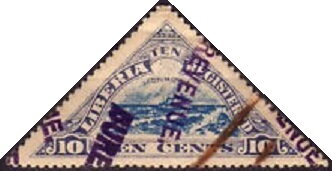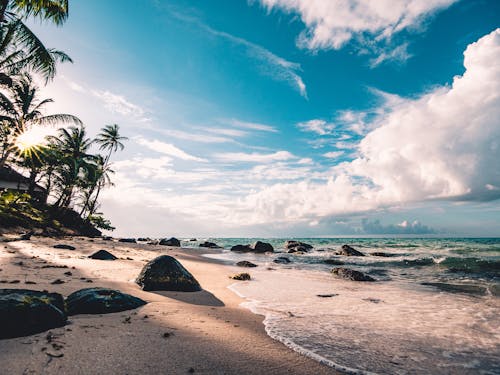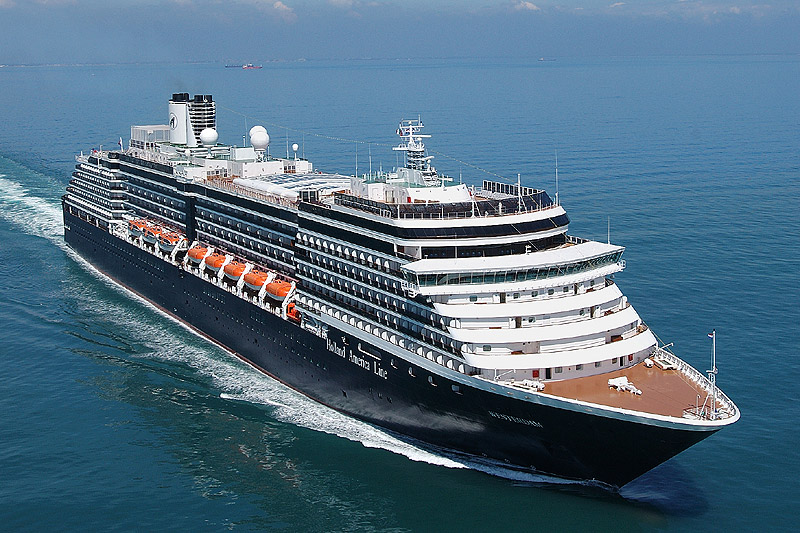Stamp: Robertsport (Liberia 1924)
Robertsport (Liberia 1924)
01 January (Liberia ) within release Revenue goes into circulation Stamp Robertsport face value 10 Liberian cent
| Stamp Robertsport in catalogues | |
|---|---|
| Colnect codes: | Col: LR R1924-47 |
Stamp is square format.
Registration stamp of 1919 overprinted "BUREAU OF INTERNAL REVENUE" (sans-serif, 3mm high) with a diagonal rubber handstamp in violet The Bureau handstamp is long, such that only parts of it are visible on individual stamps. It may exist reading upwards or downwards, upright or inverted.Also in the issue Revenue:
- Stamp - African Buffalo (Syncerus caffer) face value 25;
- Stamp - African Buffalo (Syncerus caffer) face value 25;
- Stamp - African Palm Civet (Nandinia binotata) face value 2;
- Stamp - Allegory of Trade face value 10;
- Stamp - Ananas face value 50;
- Stamp - Arms of Liberia face value 10;
- Stamp - Bongo (Tragelaphus eurycerus) face value 1;
- Stamp - Caoutchouc face value 1;
- Stamp - Caoutchouc face value 1;
- Stamp - Country Symbols face value 5;
- Stamp - Country Symbols face value 5;
- Stamp - Figure face value 10;
- Stamp - Figure face value 10;
- Stamp - Figure face value 10;
- Stamp - Huts face value 5;
- Stamp - President Charles Dunbar Burgess King face value 5;
- Stamp - President Charles Dunbar Burgess King face value 10;
- Stamp - President Daniel E. Howard face value 5;
- Stamp - President Garretson Wilmot Gibons (1832-1910); Monrovia face value 10;
- Stamp - Robertsport face value 10;
- Stamp - Robertsport face value 10;
- Stamp - Traveller tree face value 25;
- Stamp - Traveller tree face value 25;
- Stamp - Country Symbols face value 5;
- Stamp - Colonists Disembarking face value 1;
|
Data entry completed
56%
|
|
|---|---|
| Stamp Robertsport in digits | |
| Country: | Liberia |
| Date: | 1924-01-01 |
| Print: | Lithography |
| Perforation: | 14 |
| Emission: | Revenue |
| Format: | Stamp |
| Face Value: | 10 Liberian cent |
Stamp Robertsport it reflects the thematic directions:
A sea is a large body of salty water. There are particular seas and the sea. The sea commonly refers to the World Ocean, the wider body of seawater. Particular seas are either marginal seas, second-order sections of the oceanic sea (e.g. the Mediterranean Sea), or certain large, nearly landlocked bodies of water.
A ship is a large watercraft that travels the world's oceans and other sufficiently deep waterways, carrying passengers or goods, or in support of specialized missions, such as defense, research and fishing. Historically, a "ship" was a sailing vessel with at least three square-rigged masts and a full bowsprit. Ships are generally distinguished from boats, based on size, shape and load capacity.
The Kionga Triangle (German: Kionga-Dreieck, Portuguese: Triângulo de Quionga) was a small region of German East Africa situated at the mouth of the Ruvuma River. The Ruvuma served as the border between the German colony and Portuguese Mozambique, and the Kionga Triangle was the only section of German East Africa south of the river. Its principal settlement was Kionga (now Quionga ) which had a population of 4,000 in 1910. It became a German possession in 1894 but came under Portuguese control in April 1916 during World War I. The post-war Treaty of Versailles reaffirmed that the river was the border between Tanganyika, then under British control, and Portuguese Mozambique. The triangle was the only territory that the treaty awarded to Portugal.


